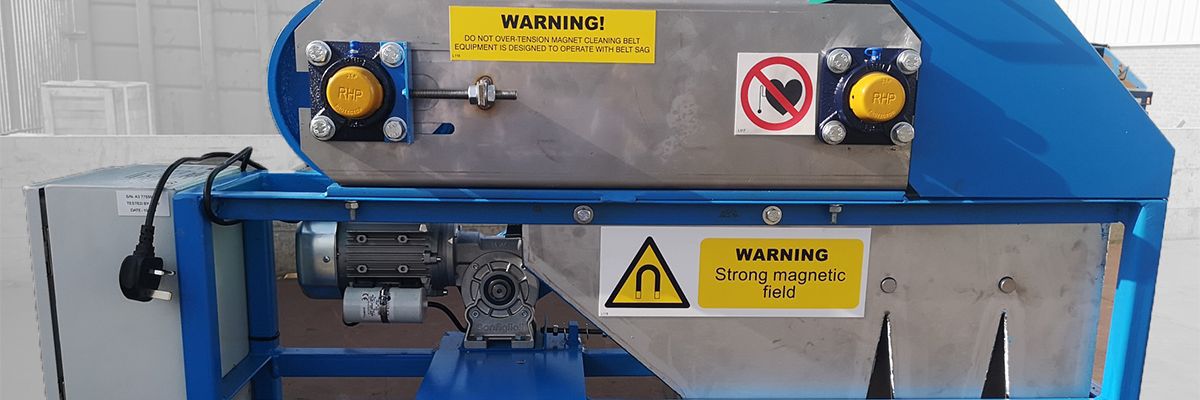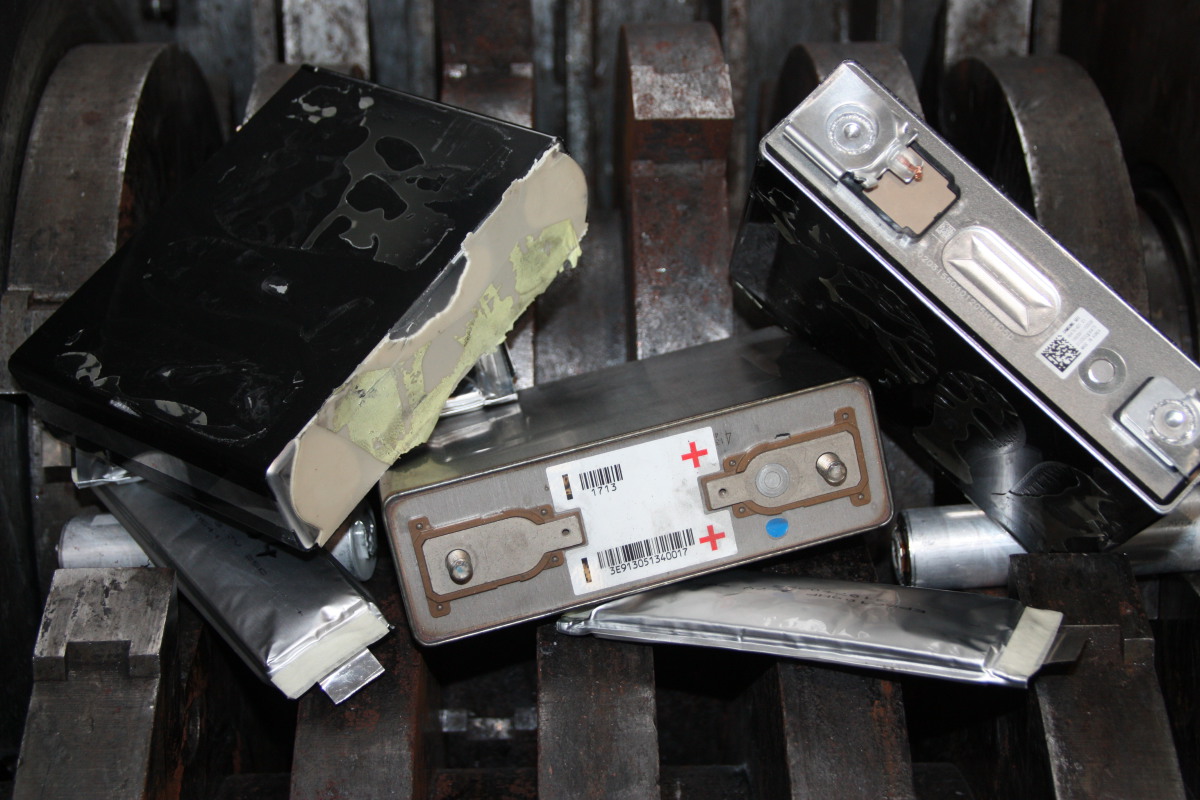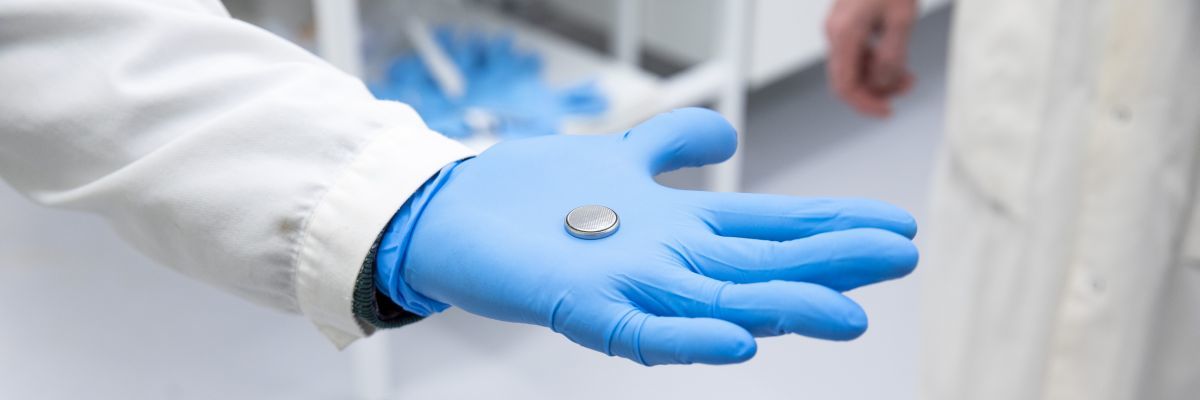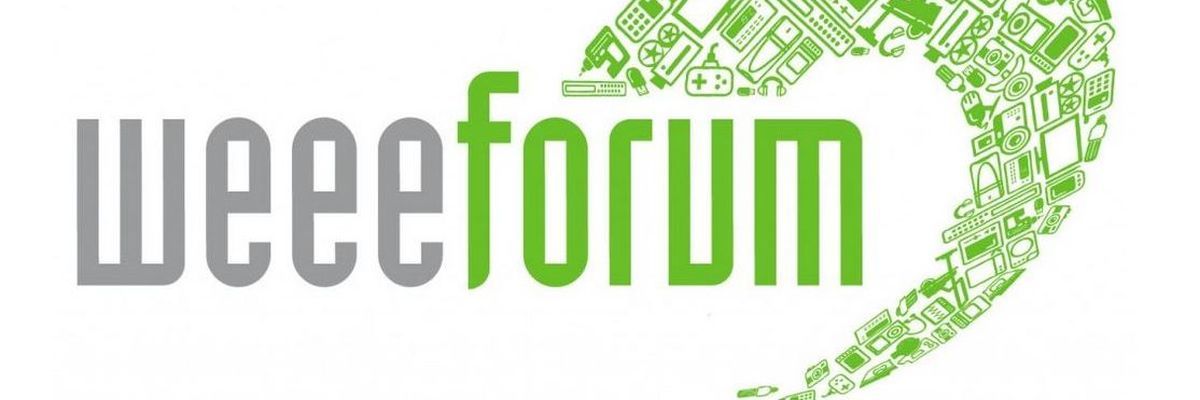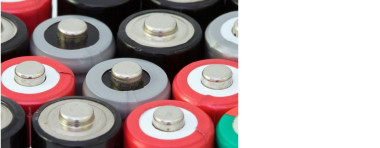Research confirms West Midlands as battery recycling heart of UK
10.06.2022Huge battery recycling facilities in the West Midlands, such as the planned Veolia plant in Minworth, are ideally situated to support the UK’s Lithium-Ion (LiB) battery recycling industry, say analysts at the University of Birmingham. As our transport system moves towards electrification, substantial piles of waste batteries are expected to be generated. While much attention has been given to how these batteries might be recycled, the costs and impacts of transporting waste for processing also needs consideration.
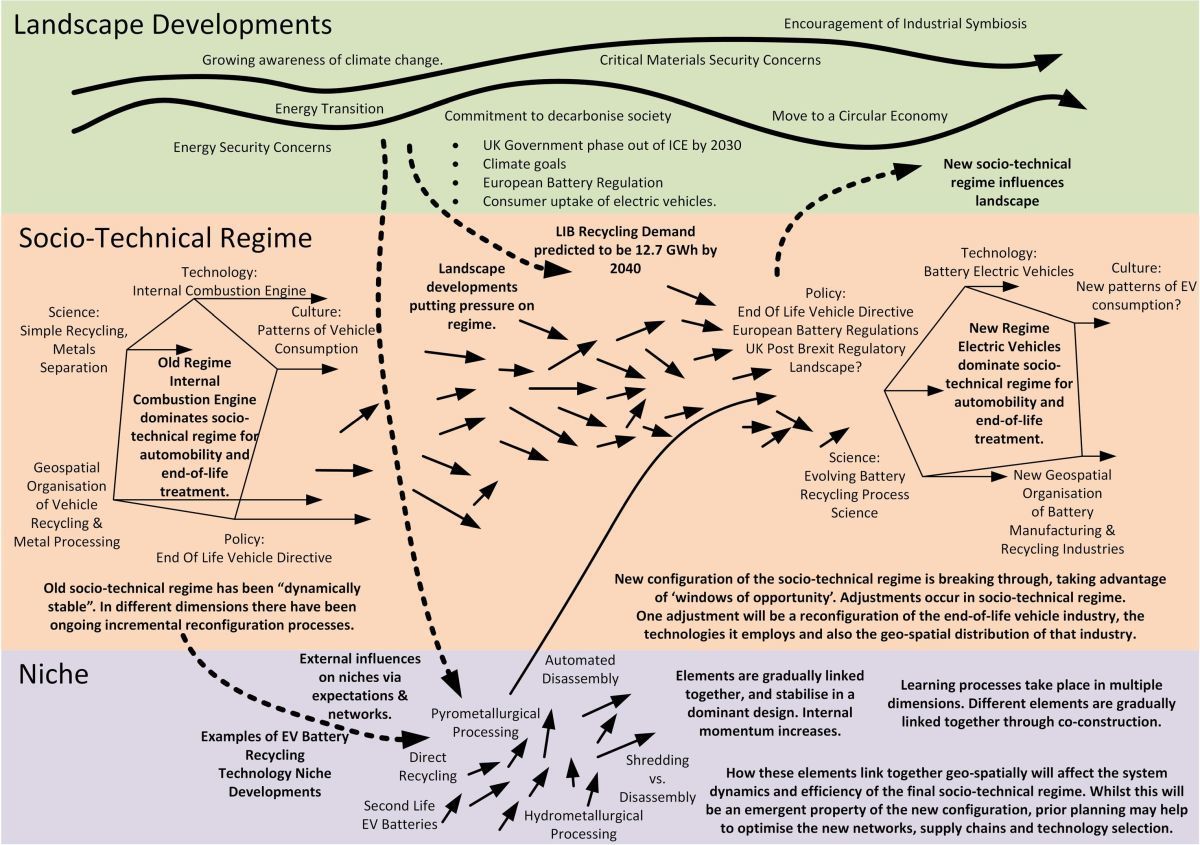 The transition to a circular economy of electric vehicles, framed through the multi-level perspective. Reworked after F.W. Geels: The multi-level perspective on sustainability transitions: Responses to seven criticisms Environ Innovation Societal Trans, 1 (2011), pp. 24-40
The transition to a circular economy of electric vehicles, framed through the multi-level perspective. Reworked after F.W. Geels: The multi-level perspective on sustainability transitions: Responses to seven criticisms Environ Innovation Societal Trans, 1 (2011), pp. 24-40
In a new study, published in Applied Energy, researchers in the University’s Recycling and Reuse of Lithium Ion Batteries (RELiB) programme investigated the ideal geographical locations for recycling facilities. They took into account the recycling technologies available, anticipated numbers of electric vehicles, as well as current and future materials used within batteries.
The analysis covers the time period up to 2040 with different solutions offered for different numbers of recycling plants. For a one-plant solution, for example, the West Midlands features strongly as the centre of recycling demand for the UK. For a two-plant solution, the recommendation would be to site facilities in the West Midlands and in London, with Yorkshire and the Humber; Scotland, Wales, East of England and then the South East following in order of significance.
In their analysis, the team used a customised version of a model called EverBatt, developed by Argonne National Laboratory, Illinois, US. The model included battery collection and transportation, cathode powder production and battery manufacturing with recycled materials.
For each activity, EverBatt calculates requirements from machinery, buildings, operating labour, raw materials and utilities to produce an overview of costs and environmental impacts. These are then used to show indicative costs for new recycling projects, including calculating economies of scale for larger facilities.
“This research clearly validates current decisions to base recycling facilities within the West Midlands region,” said lead researcher Dr Gavin Harper. “It also shows how important it is to configure this new industry in a way that will ensure its efficiency and sustainability for the long term. While the UK currently trails other nations in LiB manufacturing and recycling capacity, this tool can provide critical data that will inform strategic planning in this space as the UK battery industry continues to evolve.”
The research paper Optimising the Geospatial Configuration of a Future Lithium Ion Battery Recycling Industry in the Transition to Electric Vehicles and a Circular Economy – Harper et al (2022) is published in Applied Energy and can be found here!
For more information, please contact Tony Moran, International Communications Manager, University of Birmingham:

